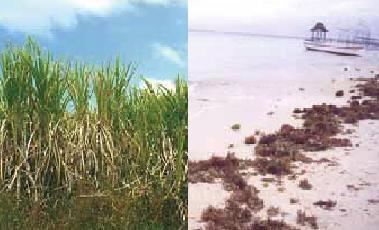Vol.
29 No. 1
January-February 2007
Building
Research Capacity to Promote Innovation
A
Case Study in Mauritius*
by
Dhanjay Jhurry
In
this knowledge era, the capacity of a country to foster innovation
is a measure of the performance of its economy. Innovation
is recognized to be closely associated with scientific and
technological development. As nations struggle to achieve
economic prosperity and gain leadership positions in the technology-intensive
and competitive world marketplace, they transit through phases
of “not yet scientifically developed countries”
to “scientifically capable developing countries”
and finally to “scientifically advanced countries.”
The status of a country is determined by its levels of literacy,
education, knowledge production and dissemination, advancement,
and effective utilization of science and technology.
It
is an alarming fact that the 4.8 billion people who live in
developing and transition economies receive only 20 percent
of global gross domestic product. A World Bank report (2002)
warns that developing countries will have little success boosting
economic growth and alleviating poverty unless they can close
a growing knowledge or education divide between themselves
and richer countries.
The
irony of the knowledge society is the unwritten rule that
its growth can only be fuelled by “knowledge,” which
besides the bits and bytes, depends heavily on human resources.
This puts countries such as India and China at a great advantage.
Mauritius, which has limited human capital, has to plan properly
so as to create maximum impact with less people. Mauritius
aims at making a quantum leap from the low/medium technology
manufacturing sectors, such as food, beverages, textiles,
and clothing, to high-technology sectors such as information
communications technology and pharmaceuticals.

Sugarcane
and algae and seaweed are renewable resources available in
Mauritius for the development of a bio-based industry.
To
foster innovation in these high-tech sectors, the support
and active involvement of academia, educational institutions,
public and private sectors, industry and of all Mauritians
at large are essential. But innovation does not simply happen.
It requires long-term and strategically directed investments
in research, people, networks, equipment, and infrastructure.
The transition time available to a country like Mauritius
is relatively short and compressed as compared to those countries
that took to the development trajectory much earlier. But
scientists have the capacity to make a difference. Individual
researchers and their institutions can do a lot to boost local
R&D and industrial development and to create symbiotic
relationships for global collaborative ventures.
...
>
full text (pdf-175KB)
* This
article first appeared in Conscientia —the Eurekahub
newsletter, July 2006 issue. Reproduced here with permission.
For more information see <www.eurekahub.com>.
Page
last modified 24 January 2007.
Copyright © 2003-2007 International Union of Pure and
Applied Chemistry.
Questions regarding the website, please contact [email protected]
|